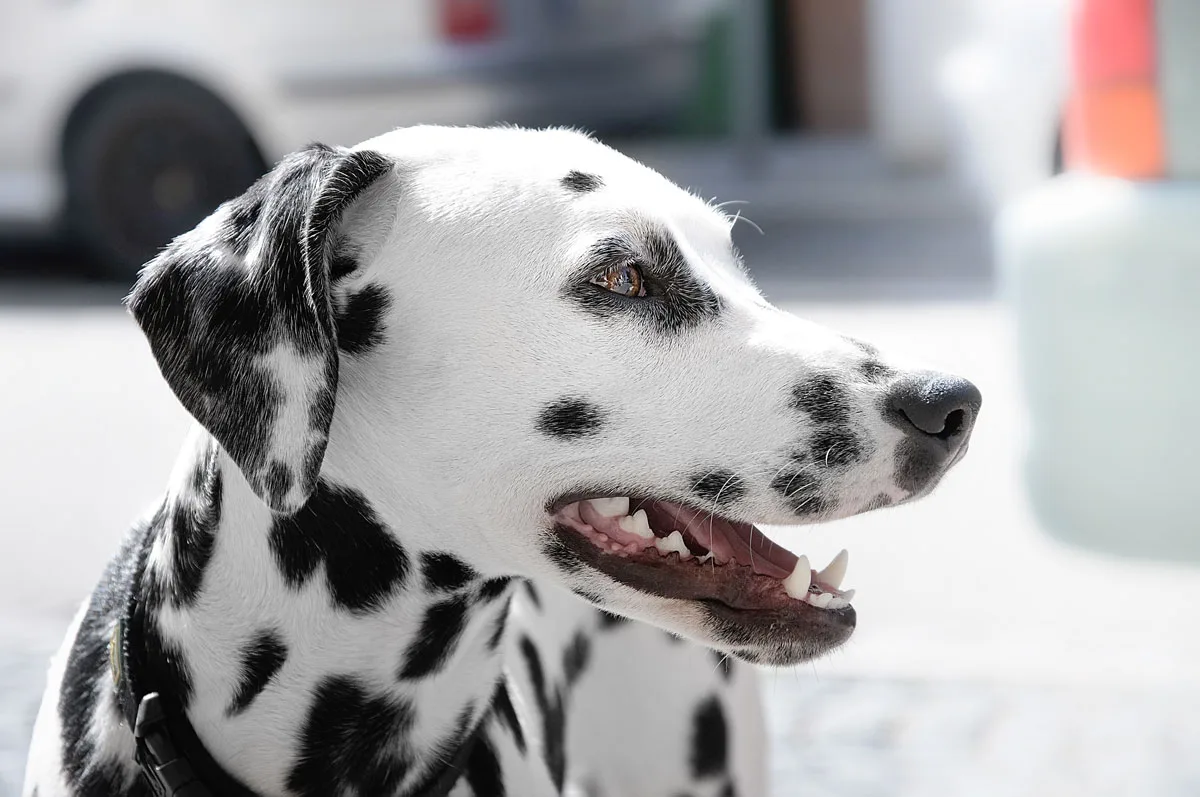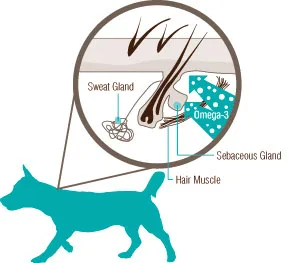
If you have a dog with dry skin, there could be many reasons for this. As a pet owner it’s never nice to see your dog suffering.
Dry skin can be easier to spot on dogs with short hair compared to longer coated dogs. If you part the coat you may be able to see flakes of skin. Dry skin can lead to an itchy dog and can become worse at certain times of the year.
A dog with dry skin may scratch, lick or bite themselves – sometimes to the point of causing injury. Other symptoms can include hair loss from excessive scratching or skin that appears dry, flaky, scaly or otherwise irritated.
Why do dogs get dry skin?
Dehydration
If your dog has mild dehydration, this can show as dry skin. If you feed your dog dry food, this automatically absorbs lots of moisture from the body and may lead to your dog drinking more water.
Allergies
Allergies are a common reason for dry skin on dogs. These can be more apparent in springtime, and the allergic response by the body can cause sensitivity in the skin and itching.
Poor diet
A low-quality diet means that your dog may not be receiving the essential nutrients that make for healthy skin and a shiny coat.
Weather
Cold or windy weather – especially when combined with the dryness caused by indoor heating systems – can really take its toll on your dog’s skin. As seasons change you may also seem other symptoms such as itching and flaking.
Defective moisture barrier
The skin has a moisture barrier (made up of skin cells, proteins and fats) that helps to retain moisture in the skin. Sometimes this becomes compromised or is just not as good in some dogs as others and can cause dry skin.
How to support your dog’s dry skin
Plenty of water
To help replenish the moisture in your dog’s dry skin, be sure to provide plenty of fresh, clean water daily.
Diet
Giving your dog a high-quality diet is essential to support their skin health. Often pets are unwittingly fed an unnatural diet, which is too high in Omega-6 fatty acids derived from high levels of cereals and vegetable proteins. Supplementing their diet with Omega-3 for dogs can help to counteract the Omega-6 imbalance and will help to support their skin and coat health.
Grooming
Regularly brushing your dog’s coat will help to distribute natural skin oils and keep their coat shiny. Try not to groom them more often than once a week as this could lead to irritation on the skin.
Protect from cold weather
Limit the amount of time your dog spends out in cold weather and use a moisturising shampoo to help relieve their dry skin. Don’t over bathe your dog as this could worsen their dry skin. Be sure to only use animal specific shampoos.
Omega-3s
Supplement your dog’s diet with Omega-3s. As well as supporting healthy skin and coat, Omega-3s appear to improve skin barrier function, sealing the moisture and keeping out irritants.
If you have a dog with dry skin, ask your vet about Nutramega which contains highly refined Omega-3 fish oil from ocean sardines.
Nutramega has been specially formulated to support an animal’s natural systems that control inflammation. The high-strength formula of Omega-3s (EPA and DHA) fatty acids combined with d-biotin and Vitamin E work synergistically to aid and sooth the skin.









